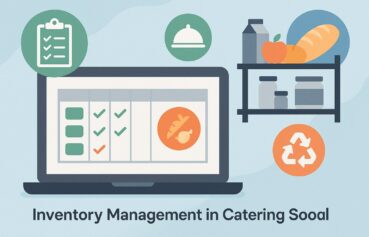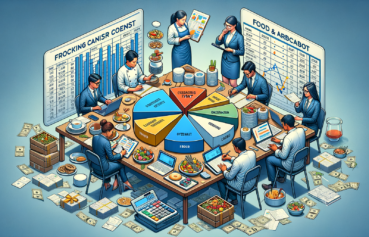Effortless Catering Management Software for Event Success
Next-Gen Solutions for Catering Operations
Welcome to Cloud Catering Manager
All-in-One
Cloud Catering Software for Modern Catering Businesses
Managing a successful catering business in today’s fast-paced environment requires flexibility, organization, and the right technology. With Cloud Catering Manager’s all-in-one catering management software, you get an intuitive platform designed to centralize your daily operations, from initial booking to event execution.
Our powerful cloud catering software enables caterers to streamline every process, offering a smarter way to handle orders, customer details, menus, staff scheduling, and more—right from any device, anytime.
With seamless online catering scheduling, automated reminders, and real-time collaboration, you’ll deliver memorable events while saving valuable time and resources. Our event catering software simplifies the complex so you can focus on growing your business and delighting your clients.
- Fast, Error-Free Processing
- Real-Time Calendar And Online Scheduling
- Automated Quotes and Payment Tracking
Transform Your Catering Business Today!
Get A Free Demo Of Our Catering Management Software
Solution We Provide

Explore Our Catering Management Software Solutions
Transform how you run your catering business with Cloud Catering Manager’s industry-leading catering management software. Our all-in-one cloud catering software platform streamlines every aspect of your operations, giving you more time to focus on delivering outstanding events and building client relationships. Say goodbye to paperwork and manual scheduling—our intelligent tools empower you to manage orders, coordinate events, and track progress from anywhere, anytime.
Built for caterers who want modern, reliable catering business solutions, Cloud Catering Manager offers intuitive tools for everything from online catering scheduling to detailed analytics. Whether you’re managing an intimate gathering or a large-scale banquet, our flexible event catering software keeps your entire team on the same page. Enjoy smoother workflows, fewer errors, and actionable insights that help your business grow.

Online Catering Scheduling
Effortlessly book events, assign team members, and sync calendars in real time.

Catering Order Management
Centralize client orders, manage menu selections, and track payment status with ease.

Customizable Event Planning Tools
Build event timelines, create checklists, and coordinate logistics—all in one place.

Menu & Recipe Management
Organize your menu, manage recipes, and highlight dietary accommodations quickly.

Real-Time Reporting & Analytics
Monitor sales, event bookings, and customer trends for smarter decision-making.
Upgrade to Cloud Catering Software Now!
Book Your No-Obligation Consultation For Smarter Event Planning
Why Cloud Catering Manager Is the Smart Choice for Modern Caterers
Cloud Catering Manager stands out as the smart solution for caterers who want to streamline operations, minimize manual tasks, and deliver a consistently high-quality customer experience. Our advanced catering management software combines the latest in cloud catering software technology with practical, user-friendly tools designed specifically for catering professionals.
Whether you’re managing a small team or scaling up for larger events, Cloud Catering Manager puts powerful resources at your fingertips, so you can focus on what you do best—creating unforgettable experiences for your clients.
Choosing Cloud Catering Manager means investing in more than just software; it’s an investment in the future growth and resilience of your catering business. Our platform offers comprehensive catering business solutions that make every stage of the process—from the first inquiry to final billing—seamless and transparent.
Automate your workflow, enhance team communication, and ensure nothing falls through the cracks with intuitive, cloud-based features that are always accessible. Experience the convenience of online catering scheduling, effortless order tracking, and smart planning tools all in one place.
- Centralized Catering Order Management
- Real-Time Online Scheduling
- Customizable Event Planning Tools
- Flexible Menu & Recipe Management
- Automated Reminders & Notifications
- Insightful Reporting & Analytics


What stood out to me was how easy it was to track inventory and plan ahead. This solution gave us more control over portions, costs, and prep without adding to our daily workload.
We run a high-volume catering business and needed a tool that could scale with us. The cloud catering software gave us flexibility to manage orders and logistics across multiple events, all without needing to be in the office.
Coordinating menus, deliveries, and staff schedules used to require juggling three different systems. This catering management software helped us bring it all under one roof and made last-minute changes much easier to handle.
Merchant Services And
Credit Card Processing Blog






















